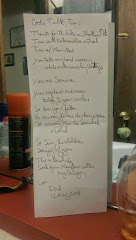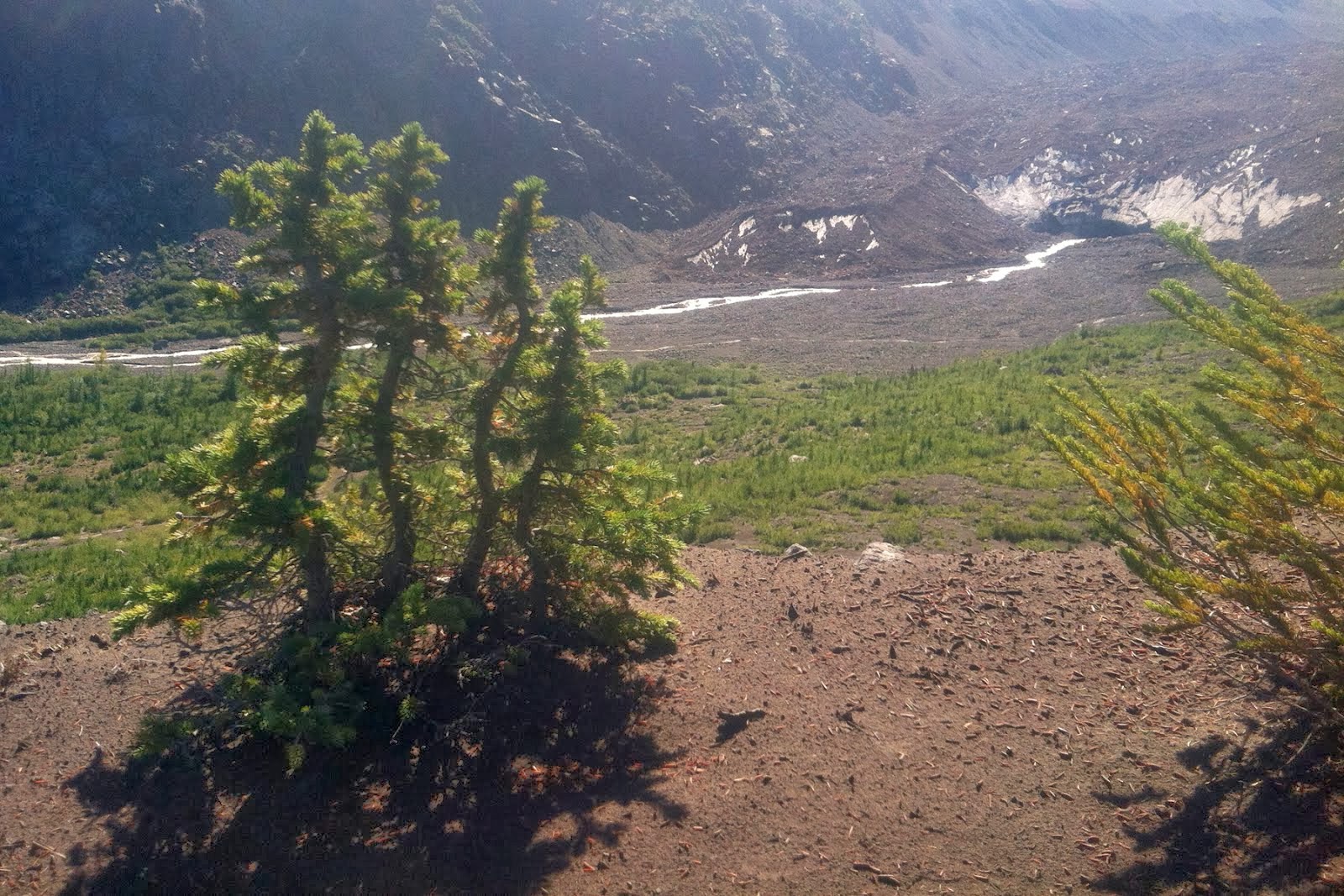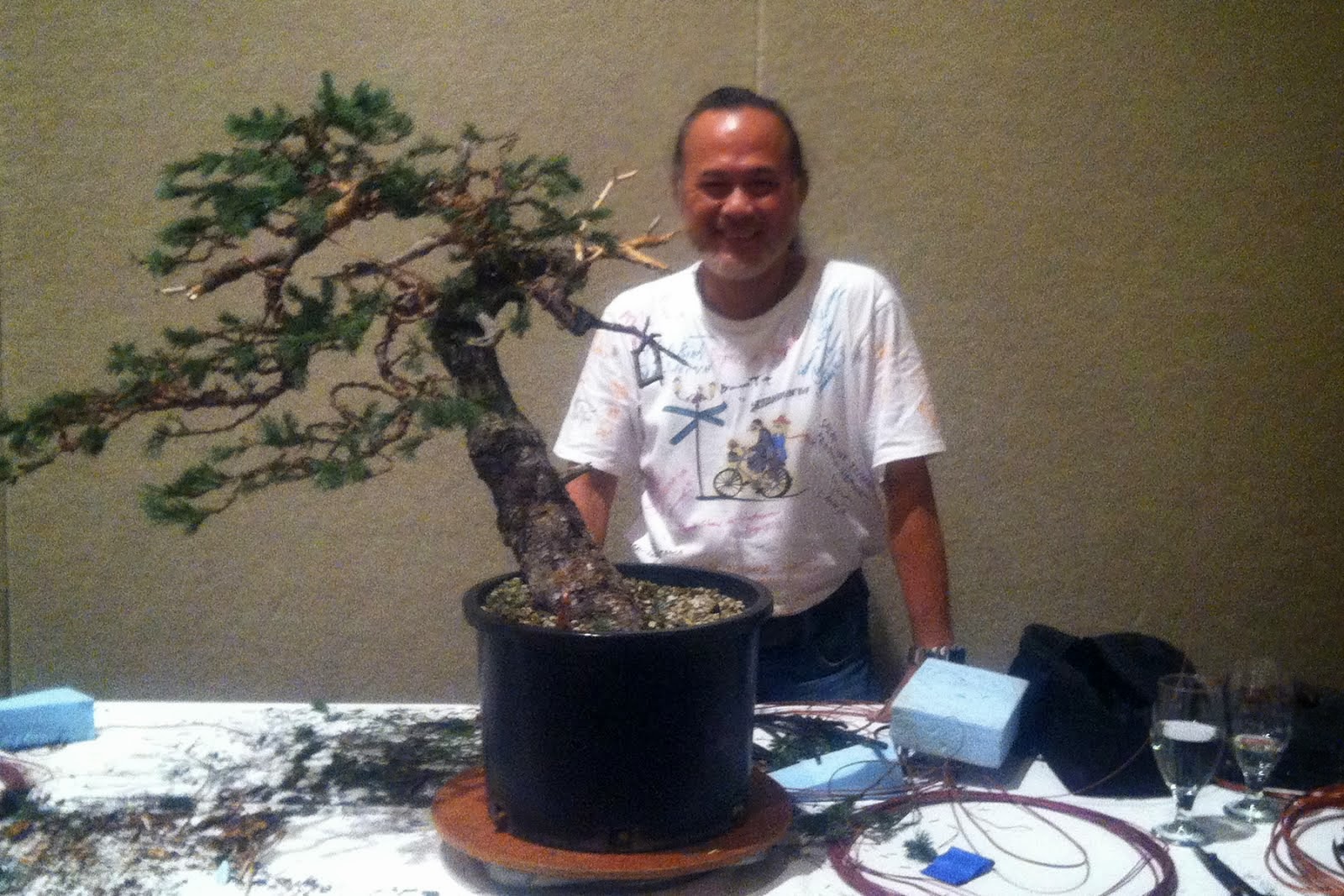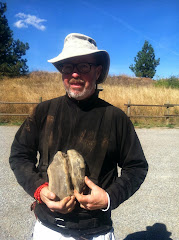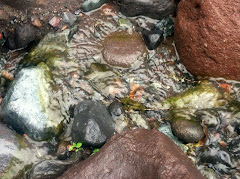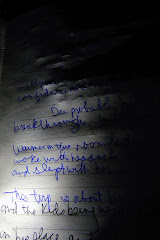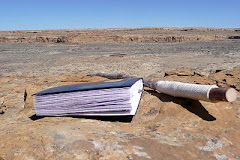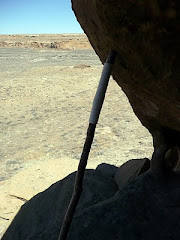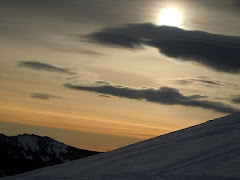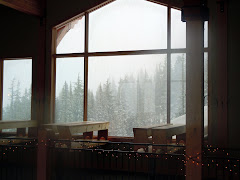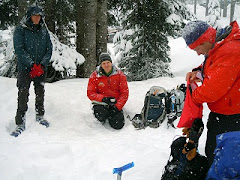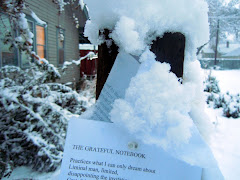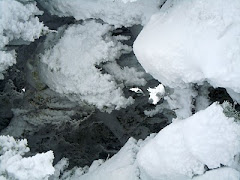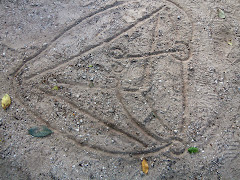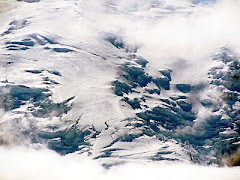THANKSGIVING LETTER TO KAREN
ON OUR 55TH
ANNIVERSARY
I.
The turkey goes into
the oven at 6:30.
This bird is
stuffed. You left that cavity to me,
doing your own
stuffing in the crock pot.
Corn bread stuffing
from both of us.
You left out eggs
from yours as an option.
I used two eggs and
celery,
but let me tell you
about mine—as it says
on the box, mine’s
a corn bread mix,
not corn stuffing.
Homestead style,
protein packed,
Kodiac.
Frontier food
restored. So add this
to the mix. This
corn bread might raise
hell with the bird
and the oven.
I don’t know what
will happen,
even now.
Even before I put
that turkey in the oven
the thought crossed
my mind
like it does each
year,
that I’m the
turkey.
Man in the oven.
Baste him
This is no
confession.
Cook him in his own
juice. Stick him with a fork..
I’ll be right
back. I have to go peek.
II.
You’re saying
Grace at dinner today.
I loved that Ann
Lamott you read me yesterday
sitting in your
butterscotch chair. We were trying on
those new support
socks you ordered.
Putting them on,
getting them over the heel.
They were too tight.
Too long.
You talking about
Lamott.
Her secret. Even at
six she believed in God
in a family of
athiests. She had that friend
growing up, they
said prayers,
and she was hungry
for every word.
Each part of her
story that you told got better,
and we decided right
then you would say grace
at our Thanksgiving
table.
That saves me from
becoming the Church Lady, too.
Karen, all of that
stuffing wouldn’t fit
inside the turkey. I
figured that out,
especially after
adding celery and onions--
oh, and carrots,
too. I split it up,
putting half of the
mix in a loaf pan.
I have no idea what
will happen.
You say Lamott grew
up around alcohol
and unhappy
grownups.
That’s how she
became watchful.
Karen, how did you
become the beloved?
III.
Last night in bed,
just before turning out the light,
you said, There’s
one more thing, she said,
speaking of our
daughter, those twins,
those two blessings,
does it matter which one
told you what? Only
in the particulars,
but it was so
beautiful. The love coming forth
from the daughters
for their mothers.
You, Karen,
recipient and seed
of the great
Mother-love. I was reading a poem
at the time, a poem
by the Canadian Robert Bringhurst.
It, too, was
beautiful, and I gave it to you to read
because it seemed to
be saying the same thing.
The same thing, but
not saying it better than you said it,
not saying it better
than our daughters said it either,
but giving us a
chance to say it again,
repeating it, a
balm, and another blessing.
These lines: We are
what we dream of--
music and truth and
some unfinished weaving.
Our fire has lasted,
and like you said,
How could you tell
anyone.
How would anybody
believe it.
IV.
Even then I wasn’t
ready for sleep Karen,
Did you get the
title of the poem, too?
Look at it: How the
Sunlight
Gets To Where It’s
Going.
My God, it’s
beautiful.
It’s beautiful
again this morning.
And we did have some
unfinished weaving
to talk about. You
were coming home
from the store and I
heard the garage door open,
and then the door to
the kitchen.
Two doors open. And
like it is in this house,
in this graced
dwelling: Imagine,
having a garage! A
house for the car!
Two doors open. And
there you are.
Your fabric art on
the dining room table.
A mountain scene
memory photograph
woven into a wall
hanging, with portraits
of grandchildren.
Nearly completed,
but in a tough spot.
Critical decisions.
Everything’s open,
you said.
Consider everything,
I’m listening.
The two doors. And
we look again.
My stuffing’s been
in the oven a long time.
It’s golden, but
the toothpick doesn’t come out clean.
Is this corn bread?
Is it stuffing?
Is it to die for?
Those doors.
I know those doors
open, those doors shut.
We look carefully at
the art on the table.
We get out the
photograph that delivered the dream.
We look again where
we hadn’t looked close enough.
Here. Look here, at
these lines. This shadow here.
How interesting up
against those rocks.
Can that be shown in
fabric?
The material you
used here, my God.
And what’s small
in the background comes forth.
It’s alive and
carrying what’s easiest to see.
What we can see, but
don’t.
We find all these
possibilities.
You find them. We
see things together
we haven’t even
learned to see.
We draw again on
separate sheets of paper
Can something be
done with this?.
There are places in
this beauty-weave
that must be
practiced and learned
before you can
finish. All of this beauty.
And that, too. That
beauty, too.
V.
Check the turkey.
Check the dressing.
Dressing itself.
Dressing for the day.
Two dressings. Corn
bread. Indigenous beauty bread.
That dressing’s
been in the oven a long time.
It’s early,
though. We have time.
Before family comes.
We set places for
everybody.
A plate for
everybody and nobody.
One way or another,
they’re all here.
Tim’s on his
mountain, but he’s not alone.
His cousin Julia’s
with him.
He sent photos of
them swimming
in a high country
lake surrounded by snow.
Wet socks! He said,
that. Wet socks!
Everybody here. Sig
and Alice.
Your Mom, Dorothy.
Your Dad.
My Mom and Dad.
Places at the
Thanksgiving table
on our 55th
Anniversary.
Love,
Jim
23 November 2023


















